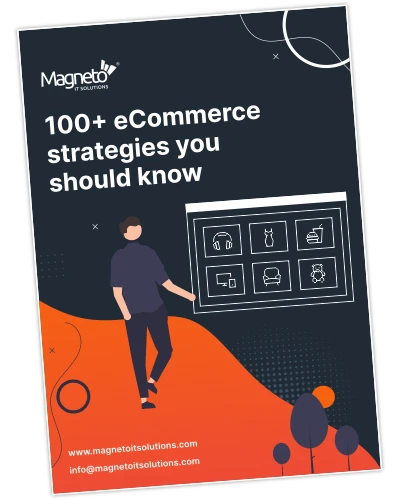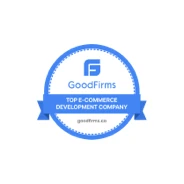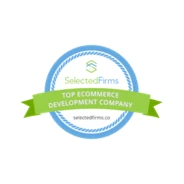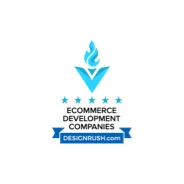Understanding e-commerce solutions in Australia is crucial for businesses seeking to grow their online store in the evolving digital era. In this competitive era, an e-business company could only survive by focusing on consumer behaviour, as online is now not just a luxury but a necessity to rely on entirely.
According to Statista, the online commerce Australian market will generate US$37.10 billion in revenue by 2024. By 2029, revenue is predicted to expand at a compound annual growth rate (CAGR) of 9.36%, leading to a projected market value of US$58.03 billion.
E-commerce is an online marketplace where customers and sellers can connect to make deals on sales of goods and services in a hassle-free environment. Advanced technologies like AI, mobile commerce, and personalisation fuel its growth and boost user engagement.
To maintain market growth and generate revenue, online store owners must choose a functional platform with payment integration, advanced SEO, and mobile responsiveness.
In this blog, we will explore the best e-commerce platforms and their capabilities to enhance engagement with the target audience and how they can be helpful for future trends.
Essential Features Of Ideal E-Commerce Platforms
The ideal e-commerce platform should be able to handle and fulfil the needs of online store owners. Though there are numerous website building and hosting platforms available in the market, the ones that have some specific features are helpful.
The e-commerce platform should monitor market competition and consumer behaviour in select regions. It should also define scalability, flexibility, personalisation, and payment integration and suggest marketing strategies.
These platforms should have some essential features to make them ideal. Let’s understand the valuable features that can help grow online business.
Insight Market Competition
An ideal e-commerce platform should be efficient in getting insights into the current market trends and their competitors to gain growth in the business.
Consumer Behavior Tracking
Identifying and analysing consumer behaviour and being able to offer them customised discounts and services are the signs of an ideal e-commerce platform. According to Bain and Company, businesses can increase their sales by 4% to 8% above their market by prioritising excellent customer service.
Importance of Localisation
Localisation should be the essence of e-commerce platforms to achieve long-term relationships, gain regular consumers, and maintain high engagement levels. Supporting regional currencies, languages, and tax laws is essential, particularly for e-commerce platforms in the Australian market.
SEO Optimisation Tools
Provide a higher rank on search engines and draw organic traffic with the built-in SEO tools.
Performance and Speed
An optimised platform can provide faster page loading and optimise performance, improving user experience and conversion rates.
Flexibility in Customisation
Able to provide customised and unique branded designs without compromising the functionality of custom themes.
Payment and Integrations
Hassle-free integrations with international and local payment gateways, specifically with the locally focused gateways of the Australian market such as Pin Payments, SecurePay
Customer Support Resources
Smooth and accessible customer support for the different regional zones for more prolonged consumer engagement.
Top 7 E-Commerce Platforms For The Australian Market
Shopify
Shopify is the most premium and popularly known e-commerce platform globally. It is recognised for its flexibility and robust features. Due to its user-friendly interface and budget-friendly and responsive design, it is a good-to-go e-business platform for several companies.
Advantages
- It is an easy-to-use e-commerce platform; even non-technical individuals can operate it.
- It is mobile-friendly. Thus, online store owners can get updates even on the mobiles.
- Appreciating customer 24/7 customer support for hassle-free workflow.
Disadvantages
- Provides limited customisation in the respective package. Needs to get an upgraded subscription for better customisation themes.
- Charges additional transaction fees in addition to gateway fees, If you don’t use Shopify Payments, which can significantly increase costs for large transactions.
Features:
- Shopify has been globally recognised for its premium features and customer support.
- It has more significant potential for responsiveness, which enhances the user experience and engagement.
Pricing:
- Basic Shopify: $29/month
- Shopify: $79/month
- Advanced Shopify: $299/month
Suitable for:
Shopify is the preferred e-commerce platform for numerous small and large enterprises.
WooCommerce
WooCommerce is an open-source, free plugin for WordPress users that turns a static website into a fully responsive online store. This integration is quite beneficial for companies that currently use WordPress.
Advantages :
- WooCommerce provides WordPress integration, which has been beneficial for owners who already have WordPress sites.
- WooCommerce is an open-source and free plugin available to the public.
- It is mainly customisable, supports numerous themes and is easy to customise as a preferred choice.
Disadvantages:
- WooCommerce is a self-hosted plugin, so high maintenance is required, such as regular updates and backups and implementing security measures to prevent loopholes in the online store.
- An open-source and freely available to the public plugin provides limited customer support.
Features:
- WooCommerce specialises in providing direct product management services.
- It can and is available for highly customisable themes and designs to gain user engagement.
Pricing:
- WooCommerce Plugin: Free to download and use.
- Additional Costs: Depending on the business’s demands, additional costs can include web hosting, security, payment methods, and premium plugins or themes.
Suitable for:
It is highly advisable for large online shopping stores.
Big Commerce
BigCommerce is a powerful e-commerce platform ideal for businesses with complex inventories. It offers advanced features to help scale operations.
Advantages :
- It is user-friendly and beginner-friendly. It can create, manage, and maintain their online stores.
- Big-commerce has no transaction fees, just like gateway fees, unlike Shopify.
Disadvantages:
- It has limited themes compared to Shopify.
- Big Commerce has a complex interface that can degrade user experience and engagement.
Features:
- It has excelled in multi-channel selling, which helps it grow and earn a high revenue, eventually bringing profitability.
- Big Commerce has product management features that help manage and upload products.
Pricing:
- Standard: $29.95/month
- Plus: $79.95/month
- Pro: $299.95/month
- Enterprise: Custom pricing
Suitable for:
Small, growing and B2B
Wix
Wix is an easy-to-use website builder that is perfect for solopreneurs and small enterprises. It provides robust business features and an easy-to-use visual editor at an economical rate.
Advantages
- Wix is an e-commerce platform that is budget-friendly and helpful for beginners.
- It mainly focuses on design and has a variety of templates.
Disadvantages
- Customer service is not optimal, and you won’t be able to export your website if you switch to other platforms.
- Wix cannot scale the website as the individual desires.
Features :
- Wix is simple to use and allows anyone to quickly create an attractive online store. It doesn’t require coding expertise.
- Wix’s user-friendly design makes managing product listings easier for merchants, even those new to the platform.
Pricing :
- Business Basic: $17/month
- Business Unlimited: $25/month
- Business VIP: $35/month
Suitable for:
It is mainly ideal for small businesses
Adobe Commerce (Magento)
Adobe Commerce offers scalable software business solutions. It includes a free Open Source version and a paid Commerce version for enterprises, allowing for customisation and growth, though technical expertise may be needed.
Advantages :
- Adobe Commerce is capable of fast loading, & user-friendliness and provides security.
- It has hassle-free and easy upgrades.
Disadvantages :
- It is way more expensive for start-ups and mid-size enterprises.
- Adobe Commerce requires hosting as it doesn’t provide the in-built hosting feature.
Features :
- Scalability is ensured by Adobe Commerce, which offers dependable solutions for expanding business requirements.
- BigCommerce, like many other systems, allows merchants to maintain their own product listings, but it also offers tools to help automate the process.
Pricing:
$22,000–125,000/year
Suitable for:
B2B and B2C
Squarespace
Squarespace is a simple SaaS platform that enables anyone to build a beautiful and effective online business.
Advantages :
- Squarespace is a complete e-commerce platform.
- One of the more effective interfaces for beginners.
Disadvantages :
- Squarespace is more expensive than competing commerce platforms, with a simple user experience.
- It doesn’t provide mobile support, so it can’t quickly get updates about the data everywhere.
Features :
- It is fully mobile responsive, which helps get the updated data anytime and anywhere.
- It has limited third-party integrations, which implies more security from outside sources and relief from data breaches.
Pricing :
- Business: $26/month
- Basic Commerce: $35/month
- Advanced Commerce: $40/month
Suitable for:
Creatives and small business owners
Ecwid
Top digital store-holder platforms like Ecwid are ideal for business owners looking to integrate an online store with their current website. They provide cost-effectiveness, flexibility, and global accessibility to satisfy various online business targets.
Advantages :
- Ecwid can reach a global audience and provide an international audience.
- It doesn’t charge extra transaction fees, unlike Shopify.
Disadvantages :
- It doesn’t allow for SEO customisation, which can directly degrade rankings.
- It has a significant dependency on host platforms.
Features:
- Ecwid provides easy integration with other platforms and helps adapt the outside features.
- It enhances mobile presence by making it easily accessible it and updating the data anywhere.
Pricing :
- Venture Plan: $19/month (USD)
- Business Plan: $39/month (USD)
- Unlimited Plan: $99/month (USD)
Suitable for:
Small and medium size
E-Commerce Platforms Adapting To Australian Future Trends
AI, Voice Search, And AR In E-Commerce
To improve the consumer experience and smoothen the business in this digital era thus, AI need to take the step. The emerging technologies AI , Voice search and Augmented Reality in online purchasing help to think and pretend and prove our work out of the box. Online retailers are able to forecast trends, provide automated customer service, and make customised suggestions with the help of artificial intelligence.
Moreover, Voice search makes it simpler for customers to find and buy products with just their voice using devices like Alexa and Google Assistant. AR improves the interactivity of online shopping by allowing customers to try on clothing or see products in their homes before making a purchase. These trends have led to 57% of consumers increasing their chances of spending money on a brand’s use of the latest technologies, such as AR.
E-commerce Platforms Shape Australia’s Future
As technology evolves and consumer behaviour changes over time, e-commerce platforms are becoming more attentive and trying to meet their customer’s needs. With the growing Australian online shopping market, the expectation of using AI for personalisation and machine learning for specific recommendations and dynamic pricing has been the top expectation.
With the expectations of getting updates anywhere and anytime, mobile commerce has become a prominent part of the digital purchasing era; thus, platforms will prioritise mobile-first designs to provide quick loading times and accessible user experiences. With the increasing features of voice and visual search capabilities, it will also be easier to find products and shop hands-free. Thus, the combination of online and offline buying will enable seamless transitions between digital and physical companies for customers.
Steps To Implement An E-Commerce Market
Starting your journey in the exploding online market requires following a few beginner-friendly steps for successful execution. Here, we would like to define 6 easy steps to implement in an online marketplace.
Planning :
Set clear goals, allocate resources, develop a business plan, identify your niche and market trends, and establish a customer service strategy.
Choose The E-Commerce Platform :
Establish your digital store by selecting a commerce platform such as Shopify, Big Commerce, Wix, or others.
Understanding The Target Market :
To stay competitive in the market and attract consistent consumers, you should understand the target market and monitor consumer behaviour.
Marketing Strategies :
In this digital era, the consumers can only be drawn to your site through the marketing. In the world of staying ahead in terms of quality, online shop owners first need to get ahead in marketing strategies.
Use Analytics :
Various strategies and tactics are useless until the gap between the consumers and the owner is closed. Thus, after fulfilling the consumer expectations, fill those gaps by taking the necessary steps based on the given feedback.
SEO Optimisation :
SEO is essential in digital marketing to increase visibility and generate leads. Consistent feedback and skilled SEO help maintain higher search engine rankings.
Conclusion
The growing Australian market has set a huge bar for e-commerce entrepreneurs. Choosing the right platform and staying competitive while keeping a firm grip on the market is essential. Selecting a platform that meets your business needs with capabilities like AI, mobile-friendly designs, and customisation is critical.
Each platform has unique benefits to support your growth, regardless of the size of your organisation. Our experts provide mentorship, technical support, and platform recommendations to help your e-commerce business succeed in Australia’s competitive market. Choose the right platform and grow your business like never before.
















